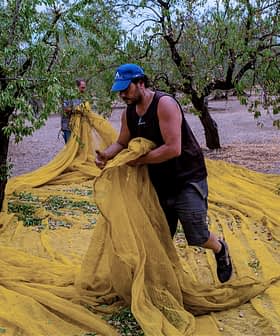The United Kingdom has introduced stringent new measures to protect the country’s trees and plants from harmful threats posed by a range of diseases and pests including deadly Xylella fastidiosa.
The U.K.’s Department for Environment, Food and Rural Affairs (Defra) brought in the new regulations amid growing concerns that current EU emergency measures were not enough to prevent the spread of Xylella fastidiosa according to threats highlighted by a pest risk assessment( PRA).
In a trade letter, Defra said, “We recognize the challenges that the horticultural sector and individual businesses are facing at the current time due to the coronavirus pandemic, and we have reflected carefully on the timing of these new regulations, but believe it is important to proceed now to protect the UK’s biosecurity.”
The revised regulations prohibit the import of Coffea (Coffee plants) and Polygala myrtifolia due to their high disease rate. Other high-risk hosts including olive, almond, lavender and rosemary will face more severe import requirements.
Defra issued a statement declaring that the legislation is in response to “significant concerns about the risk of plant material infected with Xylella fastidiosa being moved within the EU, as well as the risk of introductions from third countries.” It also highlights the recent interception of infected olive trees in Belgium and a recent case in Vinca, Italy, events that “demonstrate that there is a risk of infected plants being moved without visual symptoms.”
Chief Plant Health Officer Nicola Spence said in a press release, “Xylella is a major threat to our landscape and industry and in this year of International Plant Health it is more imperative than ever that we do all we can to ensure the UK remains a Xylella-free zone”
Tighter restrictions will also be applied to plants and trees posing a high risk of spreading emerald ash borer and plane wilt.








